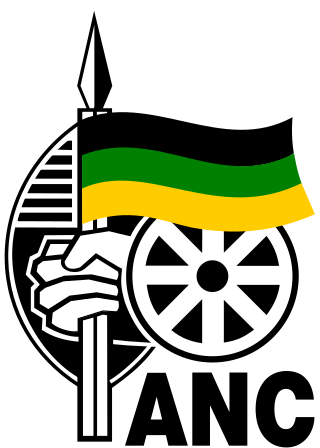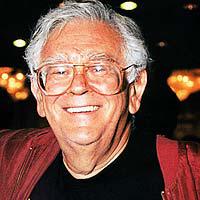Related Research Articles

The African National Congress (ANC) is a political party in South Africa. It originated as a liberation movement known for its opposition to apartheid and has governed the country since 1994, when the first post-apartheid election resulted in Nelson Mandela being elected as President of South Africa. Cyril Ramaphosa, the incumbent national President, has served as President of the ANC since 18 December 2017.
The Republic of South Africa is a unitary parliamentary democratic republic. The President of South Africa serves both as head of state and as head of government. The President is elected by the National Assembly and must retain the confidence of the Assembly in order to remain in office. South Africans also elect provincial legislatures which govern each of the country's nine provinces.

The South African Communist Party (SACP) is a communist party in South Africa. It was founded in 1921 as the Communist Party of South Africa (CPSA), tactically dissolved itself in 1950 in the face of being declared illegal by the governing National Party under the Suppression of Communism Act, 1950. The Communist Party was reconstituted underground and re-launched as the SACP in 1953, participating in the struggle to end the apartheid system. It is a member of the ruling Tripartite Alliance alongside the African National Congress and the Congress of South African Trade Unions (COSATU) and through this it influences the South African government. The party's Central Committee is the party's highest decision-making structure.

Transkei, officially the Republic of Transkei, was an unrecognised state in the southeastern region of South Africa from 1976 to 1994. It was, along with Ciskei, a Bantustan for the Xhosa people, and operated as a nominally independent parliamentary democracy. Its capital was Umtata.

A Bantustan was a territory that the National Party administration of South Africa set aside for black inhabitants of South Africa and South West Africa, as a part of its policy of apartheid.

Prince Mangosuthu Gatsha Buthelezi was a South African politician and Zulu prince who served as the traditional prime minister to the Zulu royal family from 1954 until his death in 2023. He was appointed to this post by King Bhekuzulu, the son of King Solomon kaDinuzulu, a brother to Buthelezi's mother Princess Magogo kaDinuzulu. Buthelezi was chief minister of the KwaZulu bantustan during apartheid and founded the Inkatha Freedom Party (IFP) in 1975, leading it until 2019, and became its president emeritus soon after that. He was a political leader during Nelson Mandela's incarceration (1964–1990) and continued to be so in the post-apartheid era, when he was appointed by Mandela as Minister of Home Affairs, serving from 1994 to 2004.

Joe Slovo was a South African politician, and an opponent of the apartheid system. A Marxist-Leninist, he was a long-time leader and theorist in the South African Communist Party (SACP), a leading member of the African National Congress (ANC), and a commander of the ANC's military wing uMkhonto we Sizwe (MK).

Lebowa was a bantustan ("homeland") located in the Transvaal in northeastern South Africa. Seshego initially acted as Lebowa's capital while the purpose-built Lebowakgomo was being constructed. Granted internal self-government on 2 October 1972 and ruled for much of its existence by Cedric Phatudi, Lebowa was reincorporated into South Africa in 1994. It became part of the Limpopo province. The territory was not contiguous, being divided into two major and several minor portions.
Fholisani Sydney Mufamadi is a South African politician. He was Minister of Safety and Security from 1994 to 1999 and Minister of Provincial and Local Government from 1999 to 2008.

Apartheid was a system of institutionalised racial segregation that existed in South Africa and South West Africa from 1948 to the early 1990s. Apartheid was characterised by an authoritarian political culture based on baasskap, which ensured that South Africa was dominated politically, socially, and economically by the nation's minority white population. In this minoritarian system, there was social stratification and campaigns of marginalization such that white citizens had the highest status, with them being followed by Indians as well as Coloureds and then Black Africans. The economic legacy and social effects of apartheid continue to the present day, particularly inequality.

The apartheid system in South Africa was ended through a series of bilateral and multi-party negotiations between 1990 and 1993. The negotiations culminated in the passage of a new interim Constitution in 1993, a precursor to the Constitution of 1996; and in South Africa's first non-racial elections in 1994, won by the African National Congress (ANC) liberation movement.

Internal resistance to apartheid in South Africa originated from several independent sectors of South African society and took forms ranging from social movements and passive resistance to guerrilla warfare. Mass action against the ruling National Party (NP) government, coupled with South Africa's growing international isolation and economic sanctions, were instrumental in leading to negotiations to end apartheid, which began formally in 1990 and ended with South Africa's first multiracial elections under a universal franchise in 1994.

The African National Congress (ANC) has been the governing party of the Republic of South Africa since 1994. The ANC was founded on 8 January 1912 in Bloemfontein and is the oldest liberation movement in Africa.

Chupu Stanley Mathabatha is a South African politician who is currently the Premier of Limpopo. He was elected to the position in July 2013 after the resignation of Cassel Mathale. He was previously a public servant in Limpopo province and from 2012 to 2013 completed a brief stint as a diplomat, serving as South African Ambassador to Ukraine under President Jacob Zuma.

The apartheid regime in South Africa began in 1948 and lasted until 1994. It involved a system of institutionalized racial segregation and white supremacy, and placed all political power in the hands of a white minority. Opposition to apartheid manifested in a variety of ways, including boycotts, non-violent protests, and armed resistance. Music played a large role in the movement against apartheid within South Africa, as well as in international opposition to apartheid. The impacts of songs opposing apartheid included raising awareness, generating support for the movement against apartheid, building unity within this movement, and "presenting an alternative vision of culture in a future democratic South Africa."

Mathume Joseph Phaahla is a South African politician who is currently serving as the Minister of Health since August 2021. He was formerly the Deputy Minister of Health from May 2014 to August 2021. He had been a deputy minister since May 2009, when he joined the National Assembly. He is also a member of the National Executive Committee of the African National Congress (ANC).
Mogoboya Nelson Ramodike was a South African politician who served as Chief Minister of Lebowa, an apartheid-era bantustan, from 21 October 1987 to 26 April 1994. He subsequently represented the United Democratic Movement in the National Assembly from 1999 to 2003.
Tshenuwani Simon Farisani is a South African politician, theologian, and Lutheran minister. During apartheid, he was one of the country's most prominent black clergymen and preached anti-apartheid liberation theology from his diocese in Venda and Transvaal. He founded the Black Evangelic Youth Organisation with Cyril Ramaphosa in the early 1970s and was also active in the Black Consciousness movement, especially as president of the Black People's Convention from 1973 to 1975. He was arrested on four occasions, according to Amnesty International as a prisoner of conscience, and he testified abroad about the torture he was subjected to by the apartheid police.
Prince Senzangakhona James Mahlangu was a South African politician and Ndebele prince of the Ndzundza royal family. He served as the last Chief Minister of the KwaNdebele bantustan between May 1990 and April 1994 and founded the bantustan's Intando Yesizwe party in 1990. Currently there is a school in Mogononong named after him Prince S.J Combined School
Mzwandile McDonald Masala was a South African politician and former anti-apartheid activist. He represented the African National Congress (ANC) in the National Assembly from 1997 to 2004. He was the South African Ambassador to Zambia from 2004 to 2007.
References
- 1 2 3 North, James (22 January 1989). "Testament to courage". Washington Post. ISSN 0190-8286 . Retrieved 26 May 2023.
- ↑ "Soweto My Love by Collins Ramusi". Sunday Times. 29 September 2009. Retrieved 26 May 2023.
- ↑ Heffernan, Anne (2019). Limpopo's Legacy: Student Politics & Democracy in South Africa. Boydell & Brewer. p. 63. ISBN 978-1-84701-217-3.
- ↑ Black Review. Black Community Programmes. 1977. pp. 51–52. ISBN 978-0-620-01958-3.
- ↑ The African Communist. South African Communist Party. 1973. p. 15.
- ↑ Rogers, Barbara (1980). Divide & Rule: South Africa's Bantustans. International Defence & Aid Fund. p. 81. ISBN 978-0-904759-40-2.
- ↑ A Survey of Race Relations in South Africa. South African Institute of Race Relations. 1981. p. 305.
- ↑ Legum, Colin (1979). The Western Crisis Over Southern Africa: South Africa, Rhodesia, Namibia. Africana Publishing Company. p. 87. ISBN 978-0-8419-0492-7.
- ↑ South Africa: Campaign and Election Report April 26–29, 1994. International Republican Institute. 1994. Retrieved 13 April 2023– via Yumpu.
- 1 2 "Talent from the dusty roads of Cape Town's townships". IOL. 19 December 2006. Retrieved 26 May 2023.
- 1 2 "Selaelo Charles 'Dan' Ramusi". South African History Online. 1 March 2012. Retrieved 26 May 2023.
- ↑ "Final respects for Junior Ramusi". Polokwane Observer. 1 August 2021. Retrieved 26 May 2023.